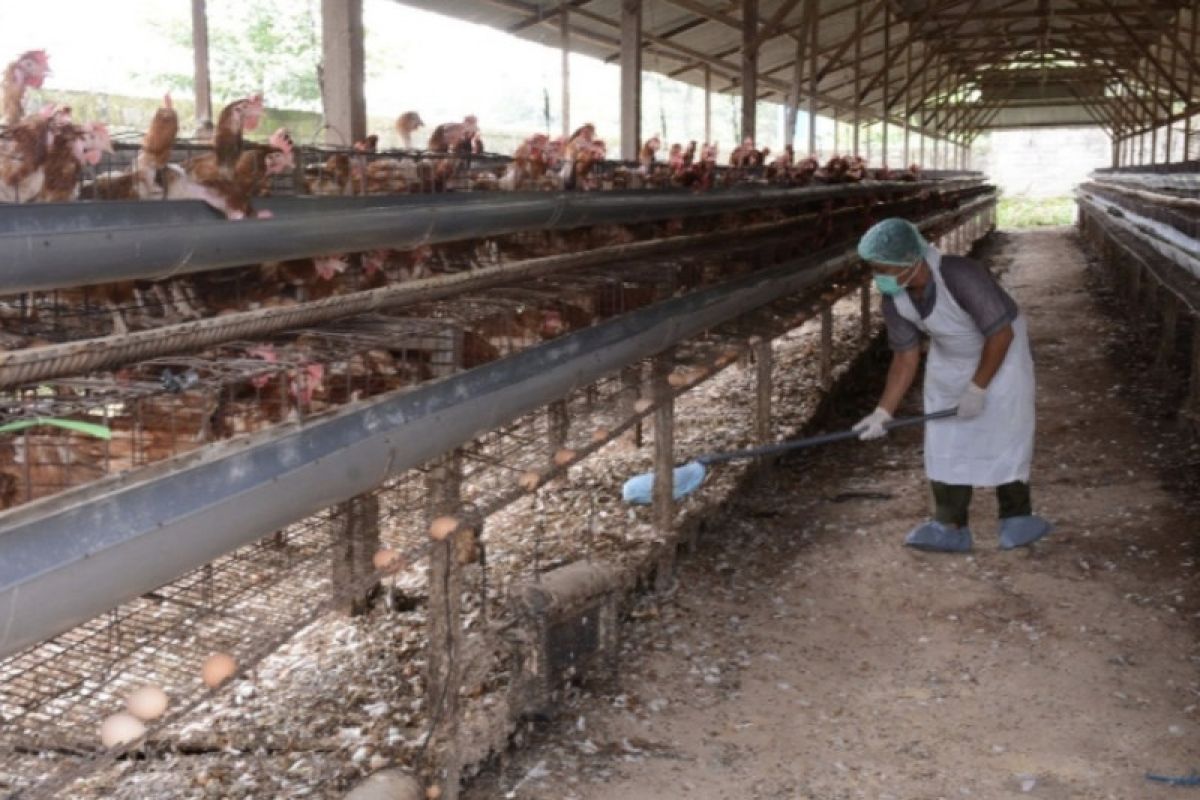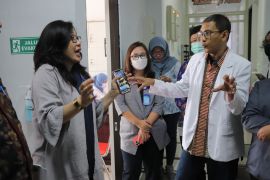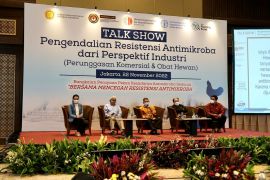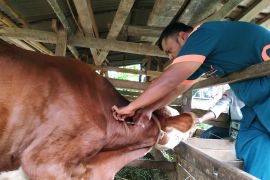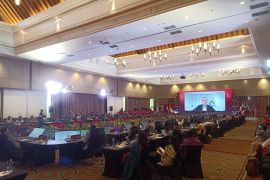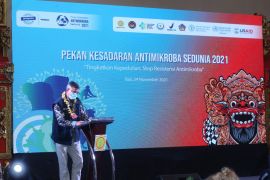According to an official statement released by the World Health Organization (WHO) on Wednesday, the activity involved the Agriculture Ministry and the Health Ministry along with the Tripartite comprising the WHO, Food and Agriculture Organization of the United Nations (FAO), and World Organisation for Animal Health (WOAH).
The successful completion of the AMR MPTF project in Indonesia was announced by related parties at a national workshop held here on Tuesday.
The FAO-WHO-WOAH Tripartite has helped Indonesia control AMR through the One Health approach since 2021.
"The collective effort done within the MPTF project from 2021 to 2023 has helped the government, especially in encouraging the implementation of the National Action Plan for AMR Control in Indonesia 2020–2024," Agriculture Ministry official Nuryani Zainuddin said.
This project focuses on strengthening the system for antimicrobial use (AMU) and AMR reduction through the promotion of prudent use of antimicrobials under the antimicrobial stewardship (AMS) programme and Infection Prevention and Control - Water, Hygiene and Sanitation (IPC-WASH) in critical sectors along the antimicrobial distribution chain for human and animal health.
In 2022, the United Nations Environment Programme (UNEP) entered the partnership to form a Quadripartite (FAO, WHO, WOAH, and UNEP), complementing the support from the environmental sector in AMR prevention in Indonesia.
"AMR is one of the biggest threats to global citizen health and economic development," Zainuddin said.
"This program has raised stakeholders' awareness on reducing the impact of AMR on humans, animals, and the environment with synergy," she added.
The AMR MPTF project has provided actionable data and allowed the Indonesian government to strengthen implementation at the next level to fight AMR in the country next year.
The Health Ministry's health service quality director, Yanti Herman, said that the multi-sectoral approach and collaboration throughout the project have taught related parties about the importance of cooperation in fighting AMR in Indonesia.
"Through three years’ cooperation, Indonesia has improved the AMR resiliency system with the One Health approach," she added.
The project has provided foundational information concerning IPC-WASH and AMS at public health centers (puskesmas), hospitals, and in the agriculture sector, and knowledge concerning AMR to health workers and laying hen breeders.
Related news: Indonesia, FAO reinforce food standards for AMR mitigation
Related news: AMR prevention, control crucial for food security: Ministry
Translator: Andi Firdaus, Fadhli Ruhman
Editor: Rahmad Nasution
Copyright © ANTARA 2023
